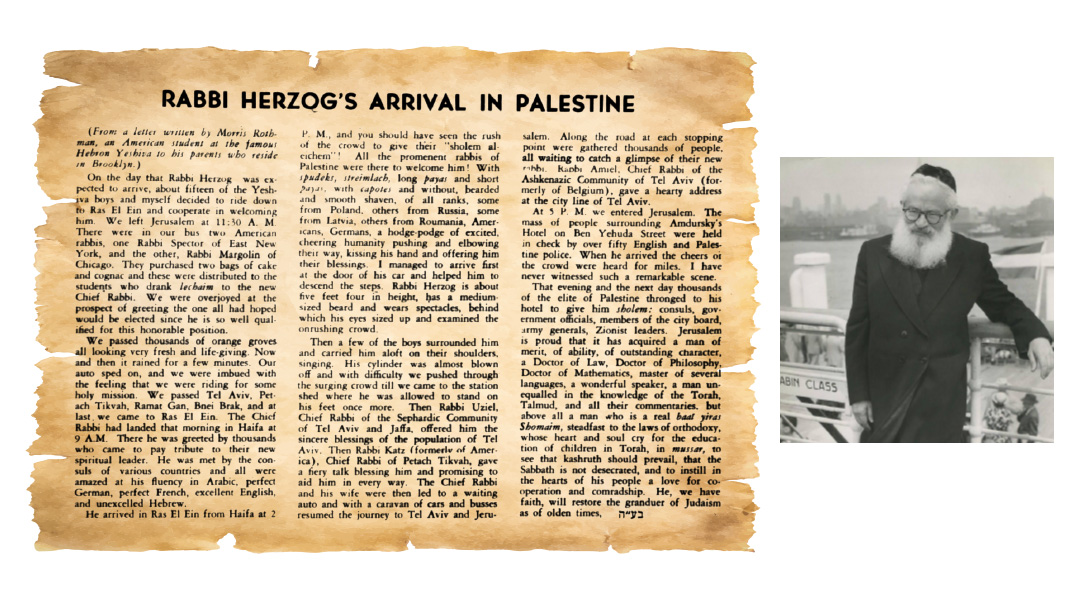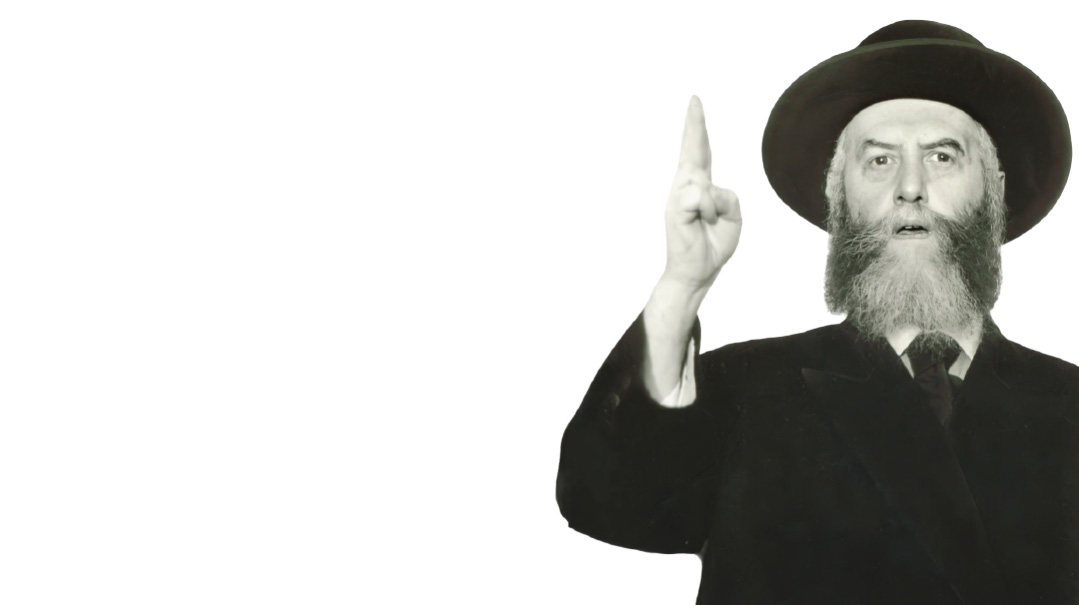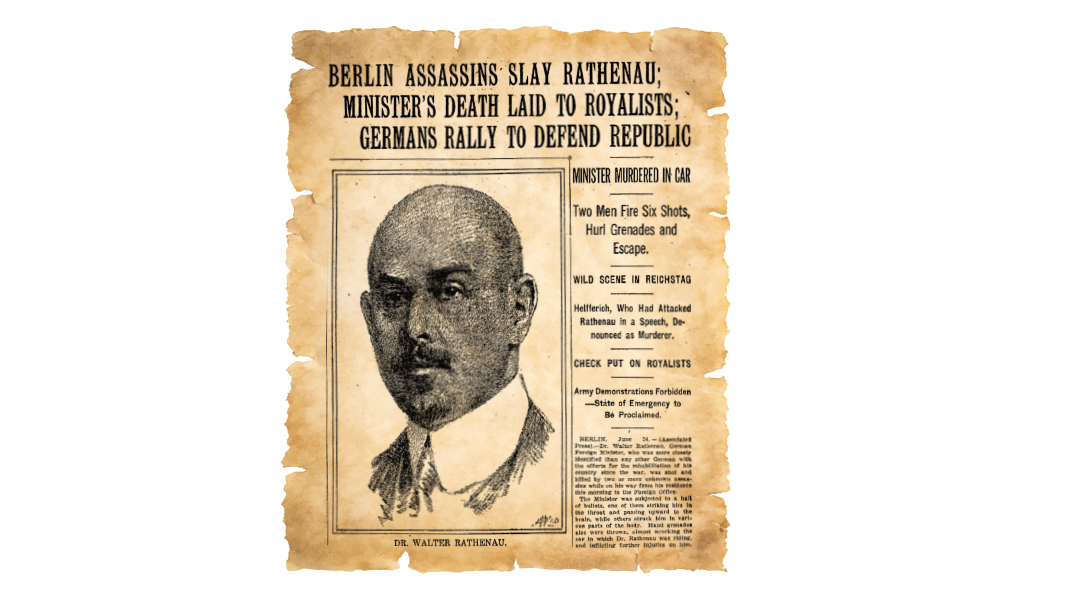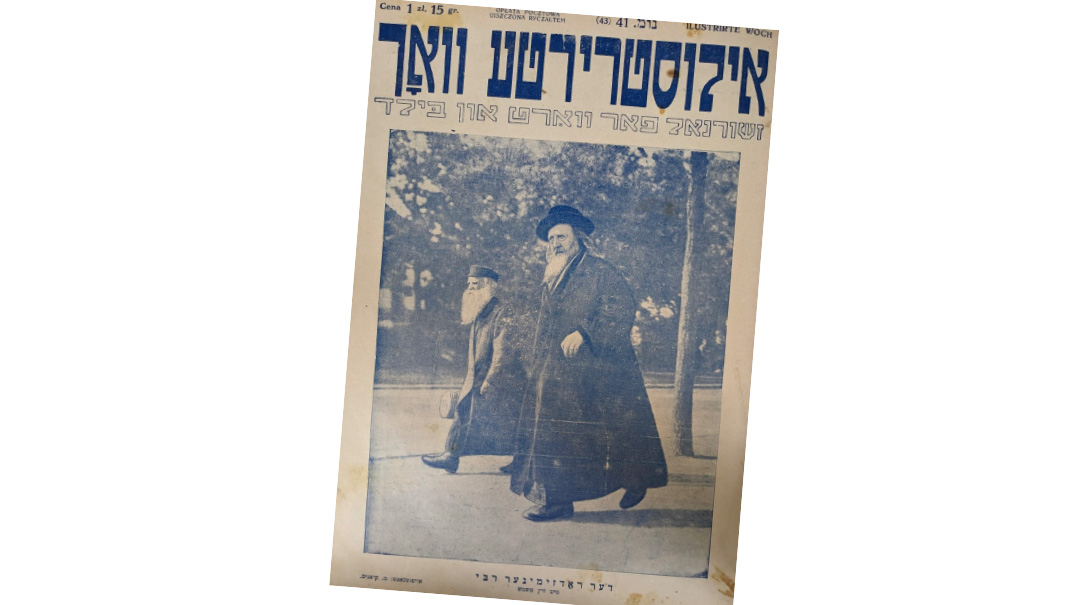Leadership in Turbulent Times
| May 7, 2024The deepening poverty confronting the Jewish People inevitably leads to a weakening of religious observance
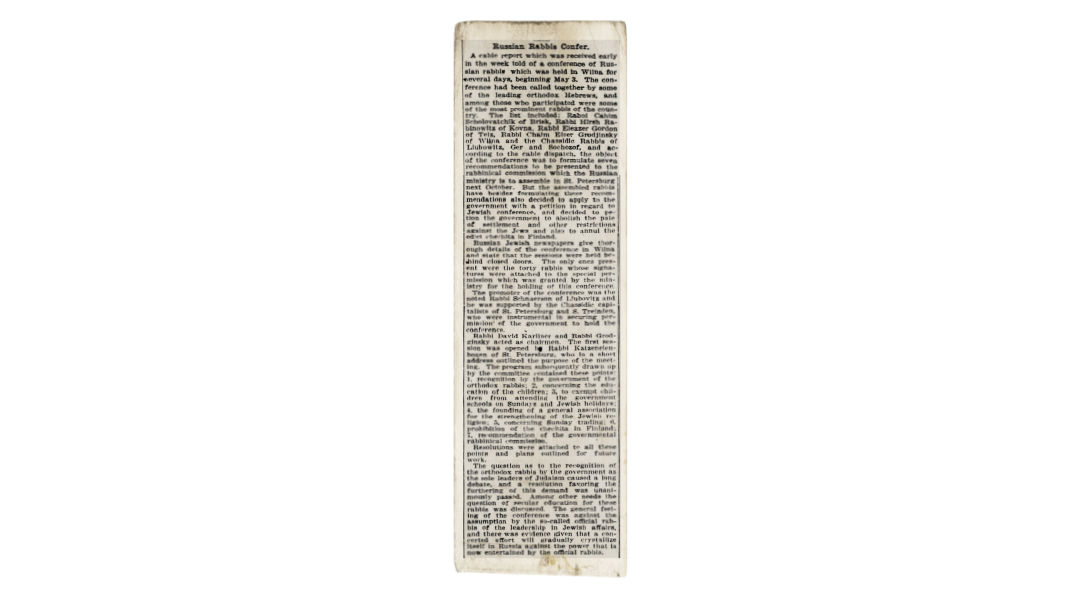
Title: Leadership in Turbulent Times
Location: Vilna, Russian Empire
Document: The Evening Star
Time: May 1909
At the end of the meeting, Rav David Friedman (Karliner) read a declaration to the assembled, which was unanimously accepted to present to the government:
“This rabbinical gathering discussed the general causes of the decreasing religious observance among Russian Jewry. We have come to the conclusion that the primary factor is their dire financial circumstances. The restrictions of the Pale of Settlement and limited economic opportunity and gainful employment cause extreme poverty, and poverty leads the Jewish People to despair and to abandonment of traditional observance. This rabbinical gathering therefore wishes to express its heartbreak regarding the material welfare of our people, and appeal to the members of the upcoming rabbinical commission to clarify this point to the government. The deepening poverty confronting the Jewish People inevitably leads to a weakening of religious observance. Given that our current rabbinical conference is only authorized to deal with matters of religious nature, we must with great consternation suffice with this brief mention [of the desperate economic situation], despite our strong desire to speak about this topic in depth.”
—12th session of the Rabbinical Conference of Vilna, 20 Iyar 1909; as reported in the Vilna newspaper Hed Hazman
When Russia’s czarist government announced that a rabbinical conference would be held in St. Petersburg in 1910, rabbanim wanted to convene a preparatory conference in Vilna. Through the efforts of the Fifth Rebbe of Lubavitch, Rav Sholom Dovber Schneersohn (the Rashab), and his loyal follower in St. Petersburg, Shmuel Michel Trainin, a license was obtained for a group of Torah leaders to gather in Vilna for a preliminary meeting to prepare for the St. Petersburg conference.
The eight-day Vilna conference took place in Iyar 1909, with 32 rabbis and communal activists in attendance. Invitees included: Rav Chaim Ozer Grodzenski; Rav Chaim Brisker; the Chofetz Chaim; Rav David Karliner (Friedman); the Rebbe Rashab of Lubavitch and his son Rav Yosef Yitzchak, the Rayatz; Rav Rafael Shapiro of Volozhin; Rav Meir Atlas of Shavli; Rav Tevli Katznellenbogen of St. Petersburg; the Imrei Emes of Gur; the Radziner Rebbe, Rav Mordechai Yosef Elazar Leiner; and several leading chassidim of the Rashab who served in prestigious rabbinical positions across the Pale of Settlement.
The conclave met for 13 sessions, each lasting approximately four hours. As the senior Torah leader present, Rav David Karliner was elected honorary president, and Rav Chaim Ozer Grodzenski, then 46, was appointed acting president. Three secretaries were appointed to record the proceedings, a Russian copy of which was to be submitted to czarist officials. The conference voted to submit a summary of the protocol to the Hed Hazman newspaper to keep the Jewish community abreast of the discussions.
Many topics and challenges were discussed and debated during the conference’s lively sessions. The pressing situation of Russia’s “double rabbinate” was a primary topic. The government required that licensed “crown rabbis” with knowledge of the Russian language and other general subjects be responsible for registering births, deaths, marriages, and divorces. But communities needed actual spiritual leaders, so they hired “religious rabbis” who weren’t recognized by the government. A variety of challenges arose from this arrangement. A major goal of the conference was to formulate a proposal to rectify this situation to be submitted to the government.
The conference’s eight resolutions were read at the final session, conveyed to the appropriate government offices, and published in the press. The resolutions were:
- To resolve the issue of the double rabbinate, a request that the government relax the general knowledge requirements.
- The imperative that a unified organization of Torah Jewry be established to strengthen religious observance.
- A request that the government allow Jewish businesses to be open on Sundays to prevent them from opening on Shabbos.
- A request that the government permit Jewish children who attend public school to be absent on Shabbos.
- A request that the government absolve cheder and yeshivah teachers from needing a general education to be licensed to teach.
- A response to the shechitah ban in Finland, then part of the Russian Empire.
- The need to plan a unified platform for the government’s upcoming rabbinical conference in St. Petersburg.
- A statement on the dire financial situation of Russian Jewry due to legislative restrictions.
Kosher Literature
The need for literature acceptable for the Torah community sparked lively discussion at the conference. A non-rabbinic attendee, Mr. Feivel Getz, “suggested that the works of the religious writers of Germany from the times of Rav S.R. Hirsch and Rav Marcus Lehman until today should be translated from German for a Russian Jewish audience.”
Rav Chaim Brisker opposed this, declaring, “The Russian rabbinate lives under very different conditions than the machzikei hadas of Germany. German books can’t be relied upon as the solution. A committee of gedolei Yisrael should be established, with funds at its disposal, for the publication of original works of literature to strengthen religious observance. Special prizes should be awarded for these books, and the authors of this genre should be financially supported.”
The Rebbe Rashab followed with a 45-minute speech on the differences between German and Russian Jewry, and how the unique challenges confronting Yiddishkeit in Russia won’t be solved by copying methods from Germany.
Thanking the Czar
The final session closed with a speech delivered by Rav Chaim Ozer Grodzenski in which he thanked the Rebbe Rashab of Lubavitch and Reb Shmuel Michel Trainin for organizing the conference. He noted that although many differences of opinion were voiced at the conference, it was all in the spirit of raising the level of spiritual life in Russia, and fell under the rubric of machlokes l’Sheim Shamayim. Rav Chaim Ozer then thanked the government and local officials for allowing the conference to take place, and then “all attendees rose from their seats, as Rav Chaim Ozer expressed in the name of the entire conference their loyalty to his royal majesty, the Czar.”
This article is based on the research and writings of Rav David Kamenetsky.
(Originally featured in Mishpacha, Issue 1010)
Oops! We could not locate your form.

